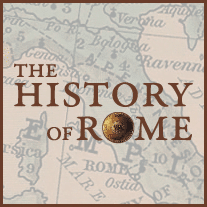Intro
In this episode of the “Modern Wisdom” podcast, host Erik Hoel delves into the fundamental mystery of the mind and explores the latest research on consciousness. He discusses how neuroscience has struggled to understand consciousness, the relationship between intrinsic and extrinsic perspectives, and the potential impact of a scientific theory of consciousness. Hoel also touches on the connection between consciousness and free will. Join him as he navigates through the complexities of the human mind and its profound implications.
Main Takeaways
Exploring Consciousness
- Consciousness and free will are two of the most puzzling aspects of human existence.
- The newest cutting-edge research on consciousness can teach us about the mind.
- AI will impact our understanding of the self.
- It is difficult to explain our inner thoughts out loud.
- Consciousness research is at an interesting time, with a recent bet over whether or not consciousness would be resolved not being resolved.
The Challenges of Neuroscience
- Galileo split consciousness off from science early on, focusing only on the quantitative aspects of the world.
- Neuroscience needs to explain qualitative properties, like consciousness, to understand how the brain works.
- For a long time, neuroscience has been hobbled by the fact that it has been fundamentally behaviorist.
- Francis Crick and Gerald Edelman won Nobel prizes for their work in neuroscience, which helped bring attention to the scientific question of how the brain creates consciousness.
- Neuroscience struggles without acknowledging the main function of the brain, which is generating the stream of consciousness.
The Elusive Nature of Consciousness
- People tried to avoid discussing consciousness directly by focusing on aspects like attention and memory, but these are still associated with conscious experience.
- Neuroscience has not made significant advancements in understanding consciousness since the field began.
- The book explores the scandal of modern neuroscience and the difficulty of studying an organ without discussing its main function.
- Neuroscience has not made significant progress in understanding how the brain operates at a high cognitive level.
- There are structures within science that prevent discussion of consciousness, which should be a major part of neuroscience.
The Intrinsic Perspective
- The development of civilization is the development of the extrinsic and intrinsic perspectives.
- Ability to describe minds developed during Ancient Greece and post-Homeric era.
- Literature is a direct window into the mind, more so than neuroscience.
- Descartes is deeply important in discussions about consciousness and the relationship between intrinsic and extrinsic perspectives.
- The paradoxes around consciousness and the relationship between intrinsic and extrinsic perspectives are deeply important in discussions about philosophy of mind.
The Quest for a Theory of Consciousness
- A satisfactory theory of consciousness would revolutionize our understanding of ourselves.
- There is still a debate about what exactly we are.
- A theory of consciousness would be as monumental as the theory of evolution by natural selection, changing humanity’s conception of itself and leading to incredible technological advancements.
- Consciousness research could revolutionize AI by making certain types of AI impossible without consciousness.
- There is a big gap in our understanding of the universe when it comes to consciousness, despite it being an accessible and present mystery.
Summary
Exploring Consciousness
Consciousness and free will remain enigmatic aspects of human existence. Through cutting-edge research on consciousness and the impact of AI, we can gain insights into the mind. However, articulating our inner thoughts can be challenging, and consciousness research is at a critical juncture with unresolved questions.
The Challenges of Neuroscience
Neuroscience has faced obstacles in understanding consciousness due to its historical focus on quantitative aspects and behaviorism. Recognizing the brain’s main function of generating consciousness is crucial for progress. Nobel laureates Francis Crick and Gerald Edelman brought attention to the scientific inquiry into how the brain creates consciousness.
The Elusive Nature of Consciousness
Despite attempts to circumvent direct discussions about consciousness, neuroscience has not made significant advancements in understanding it. The book explores the scandal of neglecting consciousness in neuroscience and the need for its inclusion. Neuroscience must address consciousness to comprehend the brain’s high cognitive functioning.
The Intrinsic Perspective
The development of civilization has involved the evolution of both extrinsic and intrinsic perspectives. Ancient Greek and post-Homeric eras witnessed the emergence of the ability to describe minds. Literature provides a more profound insight into the mind than neuroscience. The discussions around consciousness and the intrinsic-extrinsic relationship, particularly influenced by Descartes, hold significant philosophical importance.
The Quest for a Theory of Consciousness
A comprehensive theory of consciousness would revolutionize our understanding of ourselves and have a profound impact comparable to the theory of evolution. It could lead to remarkable technological advancements and reshape humanity’s conception of itself. Furthermore, consciousness research has the potential to revolutionize AI by making certain types of AI impossible without consciousness.
Conclusion
The exploration of consciousness and its relationship with free will is a complex and ongoing endeavor. Neuroscience faces challenges in unraveling the mysteries of the mind, but recent developments have shed light on the intricacies involved. A scientific theory of consciousness has the potential to transform our understanding of ourselves and the universe, with implications for AI and technological advancements. As we continue to delve into the profound nature of consciousness, we uncover new dimensions of our existence.
